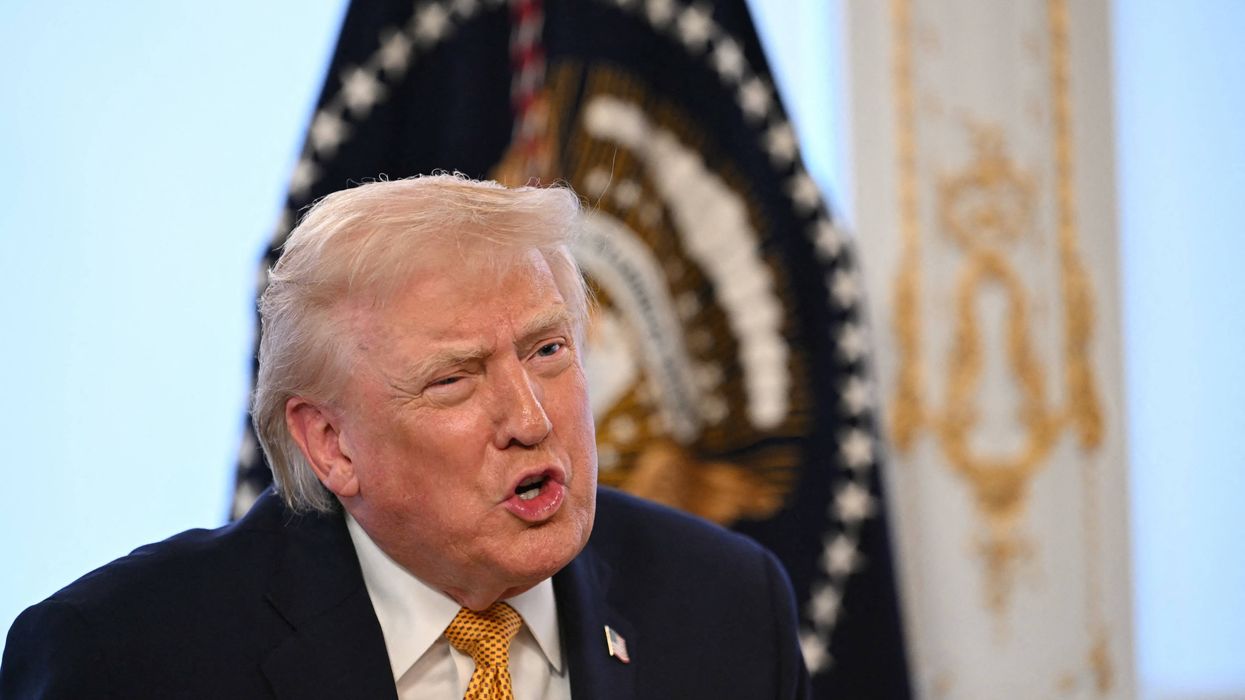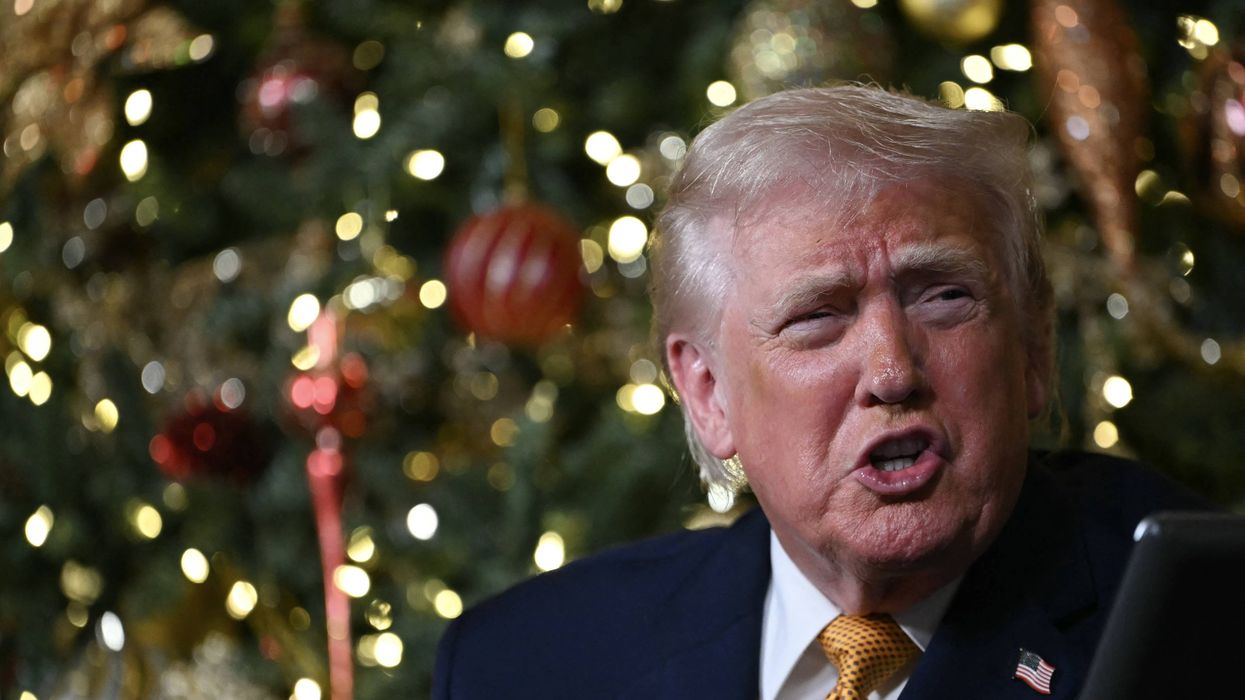October, 30 2008, 03:22pm EDT
Beyond the Banks: Bail Out the Environment, Create Jobs
WASHINGTON
As capital markets around the world are being rescued by national
governments, global unemployment is reaching record levels and the
labor market is expanding by tens of millions of workers each year. In
the face of the twin challenges of stagnating economies and climate
change, stimulating green industry is more important than ever,
according to a new assessment released by the Worldwatch Institute.
"It's time for a bailout for the environment: one that creates jobs, is
global in scope, and can help rebuild communities amidst the ashes of
the current economic crisis," says Michael Renner, co-author of the
report, Green Jobs: Working for People and the Environment, written in collaboration with Sean Sweeney and Jill Kubit of Cornell University's Global Labor Institute.*
Green jobs are not only about renewable energy employment.
Reengineering buildings, transportation systems, agriculture, and basic
industry all have the potential to create jobs that help reduce
humanity's carbon footprint and protect the environment. The report
provides an overview of green jobs by sector:
In China, renewable energy technologies employ an estimated 1 million people in the wind, solar PV, solar thermal, and biomass industries.
The building and construction
sector employs more than 111 million people worldwide. Retrofitting the
European Union's residential building sector to cut carbon dioxide
emissions by 75 percent would lead to some 2.6 million new jobs by
2030.Jobs in manufacturing fuel-efficient cars remain limited in number. Public transit
offers a greener alternative. In the United States, transit agencies
employed some 367,000 people in 2005. An estimated 900,000 people are
employed in urban public transport in the European Union.The steel, aluminum, cement, and paper industries
are highly energy-intensive and polluting. Worldwide, more than 40
percent of steel output and one-quarter of aluminum production is based
on recycled scrap, rendering the estimated quarter million jobs in
these two sectors at least a "shade of green."Recycling programs create as many
as 15 million jobs worldwide, but can entail dirty, undesirable, poorly
paid, and even dangerous work, particularly in developing countries. In
Brazil, over 90 percent of recyclable material is collected by scrap
collectors who have organized themselves into a national movement with
500 cooperatives and 60,000 collectors.A study of 1,144 organic farms in
the United Kingdom and the Republic of Ireland showed that organic
farms employed on average one-third more employees per farm than
conventional counterparts. In the Dominican Republic, organic farms are
reducing the movement from rural to metropolitan areas with local
employment opportunities.Nearly 1.2 billion people depend on agroforestry
for subsistence and income, particularly in Africa, Asia, and Latin
America. Planting trees on agricultural land provides multiple
environmental benefits and can raise farm incomes.
Addressing the climate challenge in particular requires a multipronged
approach that can create jobs, according to the report. This approach
prioritizes the development of more environmentally benign
technologies; greater efficiency of energy, water, and raw material
use; altered lifestyle and consumption choices; economic restructuring;
and environmental restoration efforts. It also requires adaptation to
those changes that now seem inevitable and perhaps irreversible.
While there is significant untapped potential in the green jobs sector,
not all news is good, according to the report. Global unemployment
stands at roughly 6 percent, affecting some 190 million people. Some
487 million workers do not earn enough yet to rise above the $1-a-day
level of extreme poverty. Furthermore, green investments are found
primarily in a relatively small number of countries. Green jobs
development is still an exception in most developing countries, which
account for some 80 percent of the world's workforce.
Other issues include the rising level of informality in the global
economy, a lack of rules and standards to help ensure decent jobs, and
the fact that environmental costs are too often externalized, making it
harder for green enterprises to compete.
Integrating social and environmental aspects into the cost of doing
business and undertaking large-scale public and private sector
investments will be key to realizing the massive potential that green
jobs hold. Government targets, mandates, business incentives, and
reformed tax and subsidy policies must promote sustainable development
in order for the green labor market to take off.
"Given all of the uncertainties in today's world, it's time for a bold
commitment and international cooperation to promote green economies
that support conservation, low carbon technologies, recycling, and
local communities," says Renner. "I can't see how we'll escape our twin
economic and environmental crises if we don't."
* The report is derived from a longer, in-depth study, Green Jobs: Towards Decent Work in a Sustainable, Low-Carbon World,
commissioned for a joint initiative of the United Nations Environment
Programme, the International Labour Organization, the International
Trade Union Confederation, and the International Organisation of
Employers. It is available for download at www.unep.org/labour_environment/features/greenjobs-report.asp.
The Worldwatch Institute was a globally focused environmental research organization based in Washington, D.C., founded by Lester R. Brown. Worldwatch was named as one of the top ten sustainable development research organizations by Globescan Survey of Sustainability Experts. Brown left to found the Earth Policy Institute in 2000. The Institute was wound up in 2017, after publication of its last State of the World Report. Worldwatch.org was unreachable from mid-2019.
LATEST NEWS
Bezos-Owned Newspaper Bashes Medicare for All in Christmas Day Editorial
The Washington Post editorial predictably ignores research showing that a single-payer system would save hundreds of billions of dollars—and tens of thousands of lives—each year.
Dec 26, 2025
An editorial published on Christmas by the Jeff Bezos-owned Washington Post inveighed against supporters of Medicare for All in the United States, pointing to the struggles of Britain's chronically underfunded National Health Service as a "cautionary tale" while ignoring research showing that a single-payer system would save the US hundreds of billions of dollars and tens of thousands of lives each year.
The editorial, headlined "Socialized medicine can’t survive the winter," laments the "religious-like devotion to the NHS" in the United Kingdom even as "hospital corridors overflow and routine procedures get canceled due to a catastrophic event commonly known as 'winter.'"
The Post editorial board, led by opinion editor Adam O'Neal, waves away expert analyses showing that the UK government is underinvesting in its healthcare system relative to other countries in Europe, resulting in the kinds of problems the Thursday editorial attributed to the supposedly inherent flaws of single-payer systems.
"This is the dark reality of single-payer and a cautionary tale for the third of Americans who mistakenly believe Medicare for All is a good idea," the editorial declared ominously.
The editorial understates Medicare for All's popularity among US voters. A recent Data for Progress survey found that even after hearing common opposing arguments, 58% of voters strongly or somewhat support improving Medicare and expanding it to cover everyone in the US.
A separate poll conducted by GQR Research found that 54% of voters nationally, and 56% in battleground districts, support Medicare for All. US Rep. Pramila Jayapal (D-Wash.), the co-leader of the Medicare for All Act in the House, is reportedly planning to present those findings to colleagues next month as she pushes Democrats to rally behind her legislation ahead of the critical midterm elections.
Welcome to the newest co-sponsors of my Medicare for All bill in the House!
Medicare for All is not only good policy — as premiums skyrocket for millions of Americans — it is incredibly popular. Let’s keep building momentum for universal health care and get this passed! pic.twitter.com/k5sg7hEkYR
— Rep. Pramila Jayapal (@RepJayapal) December 25, 2025
The renewed push for Medicare for All comes as the corporate-dominated healthcare status quo hits Americans with massive premium hikes stemming from congressional Republicans' refusal to extend Affordable Care Act tax credits.
Predictably, the Post's editorial board—which Bezos has instructed to write "every day in support and defense of two pillars: personal liberties and free markets"—neglected to mention the myriad horrors of the United States' for-profit system in its diatribe against Medicare for All.
The editorial also ignores research showing potentially massive benefits from a transition to Medicare for All, which would virtually eliminate private insurance while providing comprehensive coverage to everyone in the US for free at the point of service.
One study published in The Lancet estimated that a Medicare for All system would save more than 68,000 lives and over $450 billion in healthcare expenditures annually.
An analysis by Yale researchers calculated that "if the US had had a single-payer universal healthcare system in 2020"—which marked the onset of the Covid-19 pandemic—"nearly 212,000 American lives would have been saved that year" and "the country would have saved $105 billion in Covid-19 hospitalization expenses alone."
Keep ReadingShow Less
US Launches Christmas Strikes on Nigeria—the 9th Country Bombed by Trump
Trump—who calls himself "the most anti-war president in history"—has now bombed more countries than any president in history.
Dec 25, 2025
President Donald Trump—the self-described "most anti-war president in history"—has now ordered the bombing of more countries than any president in history as US forces carried out Christmas day strikes on what the White House claimed were Islamic State militants killing Christians in Nigeria.
"Tonight, at my direction as Commander in Chief, the United States launched a powerful and deadly strike against ISIS Terrorist Scum in Northwest Nigeria, who have been targeting and viciously killing, primarily, innocent Christians, at levels not seen for many years, and even Centuries!" Trump said Thursday in a post on his Truth Social network.
"I have previously warned these Terrorists that if they did not stop the slaughtering of Christians, there would be hell to pay, and tonight, there was," the president continued. "The Department of War executed numerous perfect strikes, as only the United States is capable of doing."
"Under my leadership, our Country will not allow Radical Islamic Terrorism to prosper," Trump added. "May God Bless our Military, and MERRY CHRISTMAS to all, including the dead Terrorists, of which there will be many more if their slaughter of Christians continues."
A US Department of Defense official speaking on condition of anonymity told the Associated Press that the United States worked with Nigeria to conduct the bombing, and that the government of Nigerian President Bola Tinubu—who is a Muslim—approved the attacks.
It was not immediately known how many people were killed or wounded in the strikes, or whether there are any civilian casualties.
The Nigerian Ministry of Foreign Affairs said that “terrorist violence in any form, whether directed at Christians, Muslims, or other communities, remains an affront to Nigeria’s values and to international peace and security."
The US bombings followed a threat last month by Trump to attack Nigeria with “guns-a-blazing" if the country's government did not curb attacks on Christians.
Northwestern Nigeria—including Sokoto, Zamfara, Katsina, and parts of Kaduna State—is suffering a complex security crisis, plagued by armed criminal groups, herder-farmer disputes, and Islamist militants including Islamic State West Africa Province (ISWAP/ISIS) and Boko Haram. Both Christians and Muslims have been attacked.
Since emerging in Borno State in 2009, Boko Haram has waged war on the Nigerian state—which it regards as apostate—not against any particular religious group. In fact, the majority of its victims have been Muslims.
"According to the Armed Conflict Location and Event Data Project, more Muslims than Christians have been targeted in recent years," Chloe Atkinson recently wrote for Common Dreams. "Boko Haram has massacred worshipers in mosques, torched markets in Muslim-majority areas, and threatened their own coreligionists."
"The crisis in Nigeria is not a holy war against Christianity."
"It is true that Christian communities in the north-central regions have suffered unimaginable horrors as raids have left villages in ashes, children murdered in their beds, and churches reduced to rubble," she said. "The April massacre in Zike and the June bloodbath in Yelwata are prime examples of the atrocities taking place in Nigeria."
"The crisis in Nigeria is not a holy war against Christianity," Atkinson continued. "Instead, it’s a devastating cocktail of poverty, climate-driven land disputes, and radical ideologies that prey on everyone and not just any distinct group."
"By framing Nigeria’s conflict as an existential threat to Christians alone, Trump is not shining a spotlight on the victims," she added. "Instead, he is weaponizing right-wing conspiracy theories to stoke Islamophobia, the same toxic playbook he used to fuel his ban on Muslims, and which left refugee families shattered at America’s borders."
Former libertarian US Congressman Justin Amash (R-Mich.) noted on X that "there’s no authority for strikes on terrorists in Nigeria or anywhere on Earth," adding that the 2001 Authorization for Use of Military Force (AUMF)—which was approved by every member of Congress except then-Rep. Barbara Lee (D-Calif.)—"is only for the perpetrators of the 9/11 attacks."
"The War Powers Resolution doesn’t grant any authority beyond the Constitution," Amash added. "Offensive military actions need congressional approval. The Framers of the Constitution divided war powers to protect the American people from war-eager executives. Whether the United States should engage in conflicts across the globe is a decision for the people’s representatives in Congress, not the president."
In addition to Nigeria, Trump—who says he deserves a Nobel Peace Prize—since 2017 has also ordered the bombing of Afghanistan, Iran, Iraq, Libya, Pakistan, Somalia, Syria, and Yemen, as well as boats allegedly transporting drugs in the Caribbean Sea and Pacific Ocean. Trump has also deployed warships and thousands of US troops near Venezuela, which could become the next country attacked by a president who campaigned on a platform of "peace through strength."
That's more than the at least five countries attacked during the tenure of former President George W. Bush or the at least seven nations attacked on orders of then-President Barack Obama during the so-called War on Terror, which killed more than 940,000 people—including at least 432,000 civilians, according to the Costs of War Project at Brown University's Watson Institute for International and Public Affairs.
Trump continued the war on ISIS in Iraq and Syria started by Obama in 2014. Promising to "bomb the shit out of" ISIS fighters and "take out their families," Trump intensified the US campaign from a war of "attrition" to one of "annihilation," according to his former defense secretary, Gen. James "Mad Dog" Mattis. Thousand of civilians were killed as cities such as Mosul, Iraq and Raqqa, Syria were flattened.
Trump declared victory over ISIS in 2018—and again the following year.
Some social media users suggested Trump's "warmongering" is an attempt to distract from the Epstein files scandal and alleged administration cover-up.
"Bombing Nigeria won’t make us forget about the Epstein files," said one X user.
Keep ReadingShow Less
'Unhinged' Trump Wishes 'Merry Christmas to All, Including the Radical Left Scum'
"Nothing more Christian than to be a hateful wretched fuck on Jesus’ birthday," quipped one critic.
Dec 25, 2025
In a message called typically on-brand by observers, US President Donald Trump wished "Merry Christmas to all"—including his political opponents, whom he described in decidedly unchristlike language.
"Merry Christmas to all, including the Radical Left Scum that is doing everything possible to destroy our Country, but are failing badly," Trump said Christmas Eve on his Truth Social network.
"We no longer have Open Borders, Men in Women’s Sports, Transgender for Everyone, or Weak Law Enforcement," the president added. "What we do have is a Record Stock Market and 401K’s, Lowest Crime numbers in decades, No Inflation, and yesterday, a 4.3 GDP, two points better than expected. Tariffs have given us Trillions of Dollars in Growth and Prosperity, and the strongest National Security we have ever had. We are respected again, perhaps like never before. God Bless America!!!"
While nothing new—Trump has used past Christmas messages to tell people he doesn't like to "go to hell" and "rot in hell"—observers, including some MAGA supporters, were still left shaking their heads.
"Radical Left Scum" 😂🤣😂🤣😂🤣Christmas greetings from a liar, traitor, pedophile, and overall shitstain upon society.
[image or embed]
— Bill Madden (@maddenifico.bsky.social) December 24, 2025 at 9:00 PM
"Nothing more Christian than to be a hateful wretched fuck on Jesus’ birthday!" liberal political commentator Dean Withers said on X.
Another popular X account posted: "A sitting president of the United States using Christmas Day to spew venom at fellow Americans he calls 'Radical Left Scum' isn’t just unpresidential—it’s unhinged, un-Christian, and utterly beneath the office."
"This is the behavior of a bitter, small man who can’t even pretend to unify for one holy day," she added. "Shameful. Disgraceful. Pathetic."
Keep ReadingShow Less
Most Popular


